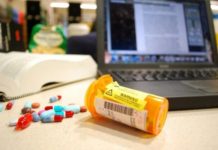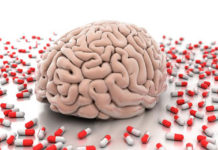What Are Best Practices For Psychosis And What Gets In The Way?
Research investigates clinicians’ perspectives on best care practices and the complicated realities of providing care in the face of agency limitations and mechanized interventions.
Ensuring Integrity of Studies: Analysis of the Dan Markingson Case
Dan Markingson was a 26-year-old mentally ill young man who violently killed himself in 2004 while enrolled in a drug-sponsored study of atypical antipsychotics among persons experiencing psychosis for the first time. Highly vulnerable individuals like Markingson should not be taken advantage of in the name of scientific research, and inability to protect such vulnerable subjects compromises the integrity of research.
Julia Rucklidge: Nutrition, Mental Health and TED
An interview with Dr Julia Rucklidge, professor of clinical psychology at the University of Canterbury in New Zealand and Director of the Mental Health and Nutrition Research Group.
Stimulant Drugs Have Adverse Effects on Cognitive Functioning in Healthy Students
Study of students without an ADHD diagnosis finds that stimulants (Adderall) have little impact on cognitive performance.
Psychiatric Retraumatization: A Conversation About Trauma and Madness in Mental Health Services
As a clinical psychologist and someone who was herself “diagnosed” and “treated” for “serious mental illness,” Noël Hunter has a unique vantage point to view the mental health profession. I spoke with her about her new book, which offers an insightful critique of mental health’s diagnostic and treatment irrationalities.
Unsafe Use of Sleep Drug Zolpidem is Common
Three out of four users of the sedative, zolpidem (brand name Ambien), do not follow FDA recommendations to reduce risk.
Healing From Schizophrenia
My experience is that living in a psychosis forces your brain to "stretch" — you develop extra capacity to handle things. I was pretty much living a normal life, even working some of the time, while having all of my psychotic problems. After the psychoses faded away, I no longer needed to fight monsters, but I still had that extra capacity left. After 11 periods of psychosis, my brain has never worked as well as it does now.
Most Psychology Research Does Not Generalize to the Individual
A new study claims that quantitative research in psychology is “worryingly imprecise” and that generalizations may be flawed and misleading.
“Diagnostic Dissent”: Experiences of Individuals Who Disagreed With Their Diagnosis
Researchers investigate the first-person experiences of people who disagreed with their psychiatric diagnosis of psychosis.
Social Adversity and Crime Victimization Increase Risk of Psychotic Experiences Five Fold
Researchers parse out factors within urbanicity that leads to risk for psychotic experiences.
Escaping from AOT: Letter to the Judge
To the judge presiding over my upcoming AOT hearing: I would like a better way to take care of my own health care than the choices currently being imposed on me by community mental health centers, which involve forcibly injecting me with a drug that I do not want and making me take a daily pill that I do not want to take. There is no reason that anyone should make my own health care choices for me.
Searching for Zen and Finding a Cow
If I had a clinical problem, why was something as ancient and simple as meditation helping me? And if normal positive human habits could be so profoundly useful, why the heck was the field marketing pills and “clinical” coping mechanisms to me instead? This frustration helped me jump ship from the medical mindset and hop into the world of humanity.
My Polypharmacy Predicament
Ironically, my post-traumatic stress disorder no longer stems from the events that led to my hospitalizations, but from the maltreatment I received within the hospitals. Now, every time I take my medication late or miss a dose, I feel the unsettling presence of dissociation creeping in, the terrifying panic of losing my mental bearings and being rehospitalized.
The Story of a Professional Delusion: Do Psychiatrists Believe Their Own Words?
I believe this is what happened: The people responsible for this travesty looked at the truth (that psychiatrists hardly ever tell the truth about their drugs) and realised they didn't like what would flow from that fact getting loose. So they removed it and substituted a falsehood (only ever) whose consequences they could live with.
New Research Suggests Brain Abnormalities in ‘Schizophrenia’ May Result From Antipsychotics
Study finds that reduced cortical thickness and brain surface area associated with 'schizophrenia' may result from antipsychotic drug use.
12 Mental Health Design Principles to Replace This Thing
One of the issues we face in mental health is that everyone knows the system is broken, but there is no replacement yet. So the question is, what are the mental health design principles to build a replacement? How do you build a functional mental health system that isn't disease-based? How do you make it robust, scalable and spreadable?
Former Service User Studies the Inpatient Experience
Researcher and former service-user Diana Rose utilizes a participatory research process to examine experiences on inpatient wards.
Mad in Asia: Towards Multiple Narratives for Inclusion
An e-zine with the mission to contribute to changing the narrative about madness and mental distress in the Asia region has launched. Mad in Asia hopes to showcase narratives that are contextually relevant to the Asia region, with a focus on the human rights of persons with psychosocial disabilities.
Psychologists Argue for Decolonial Approach to Global Poverty
Individualist psychological models of poverty pathologize poor communities, decolonial approaches that emphasize context and interdependence may be more sustainable.
Inhumane Medicine in Germany: A Dark Chapter Continued
Although I left Ueckermünde without the ability to speak, heavily traumatized and barely able to move, I managed to reclaim life after more than a decade. Today I am one of the few witnesses who survived the Hell of Ueckermünde, who can tell the story of my companions and raise awareness of the injustice committed against us as well as demand answers.
Study Shows Poor Outcomes for the Treatment for Childhood Anxiety
New research identifies poor long-term outcomes for both CBT and medications for treating anxiety disorders in childhood.
Benzodiazepine Awareness 2018
A special two-part interview to join in with events for World Benzodiazepine Awareness Day 2018. We hear from W-BAD Lead Operations Volunteer Nicole Lamberson, psychiatrist Dr Josef Witt-Doerring, therapist and campaigner Chris Paige and Mad in America founder Robert Whitaker.
Poor and Foster Care Children More Likely to be Diagnosed and Treated with Psychiatric...
Study details Medicaid-insured birth cohort’s exposure to psychiatric medications and mental health services.
Transcranial Magnetic Stimulation No Better Than Placebo for Treatment-Resistant Depression
A new study in JAMA Psychiatry found that transcranial magnetic stimulation was no better than placebo for treatment-resistant depression.
Anti-Stigma Campaigns Enable Inequality, Sociologists Argue
Scholars contend that stigma functions as a mechanism of power in analysis of UK Heads Together mental health campaign.

































